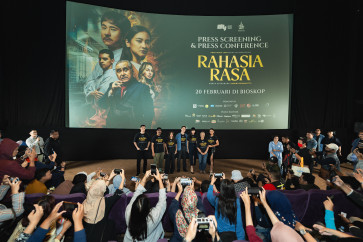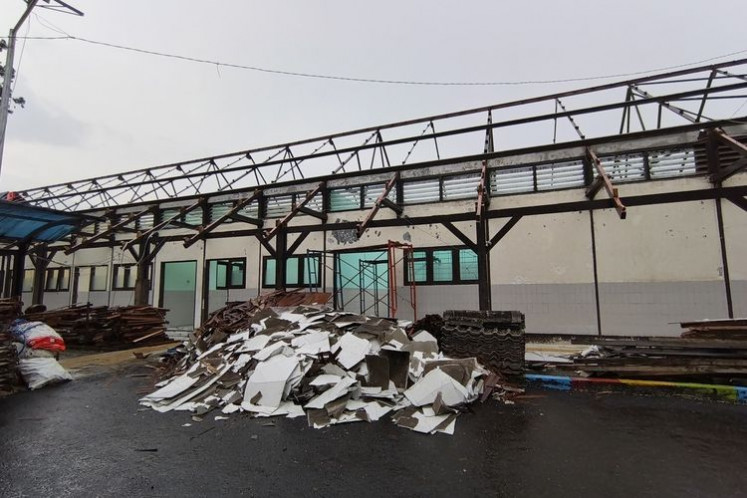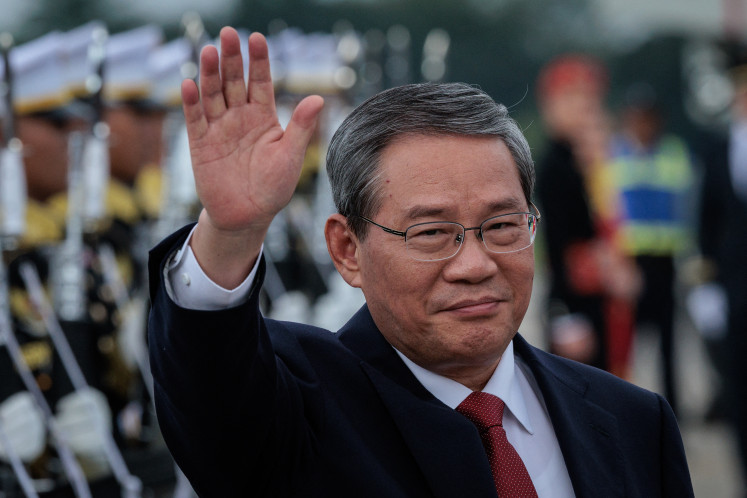Rohingya refugees in Indonesia face constant hurdles in resettling
Change text size
Gift Premium Articles
to Anyone
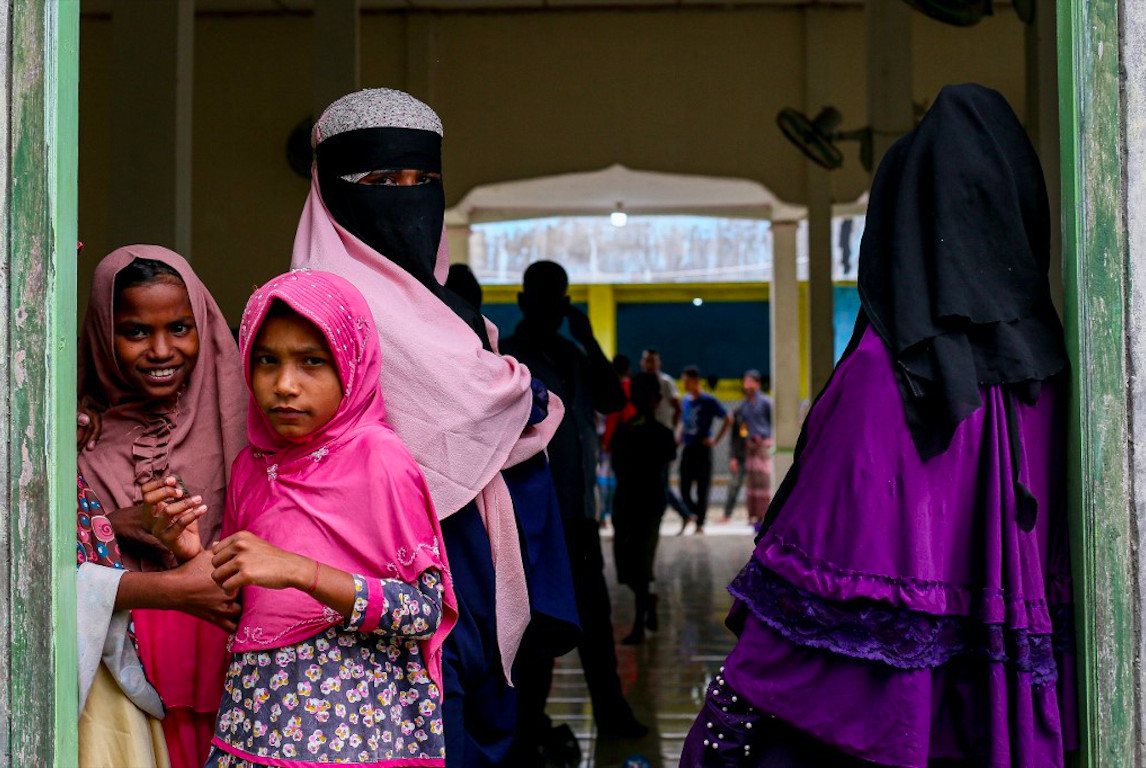
M
any refugees still come to Indonesia with hopes of a better life, but they often receive no support during the resettlement process.
Rohingya refugees in Makassar face the despair of not knowing what the future holds for them after finally setting foot in Indonesia.
Shofiqul, 22, currently a university student at Christian University of Indonesia, has been residing in Makassar for nine years. According to him, there are at least ten other, newer, Rohingya refugees that he knows of in Makassar. For the last three years, these newer refugees have not been able to access jobs or even housing.
“I can relate to [their plight] because I also wasn’t able to speak Indonesian, back then,” Shofiqul reminisced about his first days in the country. He considered himself fortunate. Years back, when Shofiqul arrived in 2013, he received support from International Organization for Migration (IOM), a local non-governmental organization (NGO).
“My house was burned to the ground, and my father was killed by the military; that is why we were looking for a better life in Indonesia,” Bebe Warisah, 27, another Rohingya refugee in the city, shared. The life she had hoped for after moving to Indonesia has never been realized.
With no house, Bebe and other refugees who currently live in the streets are relying on support from the locals. They also use the toilet at a nearby local school for their daily sanitary needs. Bebe's mother, 73, currently suffers from a heart disease but is unable to access medical support because they have no accessibility rights to health and economic facilities in Indonesia.
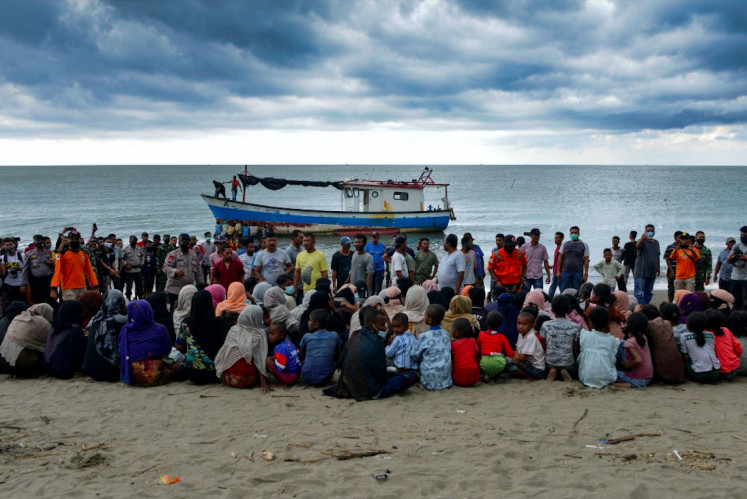
Challenges
Rohingya’s plight has fueled Southeast Asia’s biggest refugee crisis in decades, and has taken a back seat since the devastating onset of the COVID-19 pandemic and later a putsch that has placed Myanmar under military rule.
Recently, on July 18, the topic was addressed by Foreign Minister Retno LP Marsudi and her Bangladeshi counterpart AK Abdul Momen at the Pancasila Building in Central Jakarta.
“About Rohingya, we acknowledge that this long overdue [issue] still requires our utmost attention,” Retno said in the joint-press statement.
“Indonesia is committed to continuing our assistance to [the] people of Rohingya and to help the people of Myanmar as well.”
There were a lot of Rohingya refugees in Indonesia. They came over different periods from 2009, 2012 and 2015 as researched by the Indonesian Civil Society Association for Refugee Rights Protection (SUAKA), a non-governmental organization.
Based on the United Nations High Commissioner for Refugees (UNHCR) statistics as per September 2016, there are a total of 959 Rohingya refugees in Indonesia. That’s 13 percent of asylum seekers in Indonesia.
The issue is nothing new. The UNHCR is in charge of determining refugee status and facilitating resettlement to a third country. Refugees’ personal daily needs such as shelter, education and health access are taken care of by IOM. However, in 2016, SUAKA found that IOM’s help is often insufficient.
Ariani Soejoeti, national media and communications officer of IOM, shared that not all of the refugees that came to Indonesia are under the organization. She further added that there are at least 1,531 refugees in Makassar under IOM care, and they are all supported equally with medical support and accommodation.
“We would welcome the opportunity to confirm whether they are registered under IOM’s refugee-care program,” she explained. Ariani further explained that there should be more information about why the current refugees in Makassar have not received any assistance.
“Information such as, are they registered under IOM’s refugee-care program? When did they arrive in Makassar? Are they registered by the UNHCR? Has their application for refugee status been accepted? Unfortunately, without these details, we can’t provide you with any comments,” Ariani continued.
Ariani also addressed that in the meantime, the organization needs support from community members to help refugees’ resettlement in the country.
Ariani further explained that the organization is trying to improve its services in order to clear any miscommunication within the society. In a statement, Ariani wrote that IOM’s role in Indonesia does not include referral for resettlement or any advisory role in the resettlement-selection process.
Shofiqul shared that it is even harder for refugees because Indonesia is not part of the 1951 Refugee Convention.
Citing from the UNHCR website, as a result of the regulation, the government authorizes UNHCR to carry out its refugee-protection mandate and to identify solutions for the refugees in the country. Indonesia also does not have a specific legal framework for refugees, as cited from SUAKA.
The situation has caused refugees to face enormous challenges to find warrants for employment up to formal education.
Last year, The Jakarta Post reported that President Joko “Jokowi” Widodo enacted Presidential Regulation (Perpres) No. 125/2016 on the treatment of foreign refugees. However, according to SUAKA, the regulation is not implemented well.
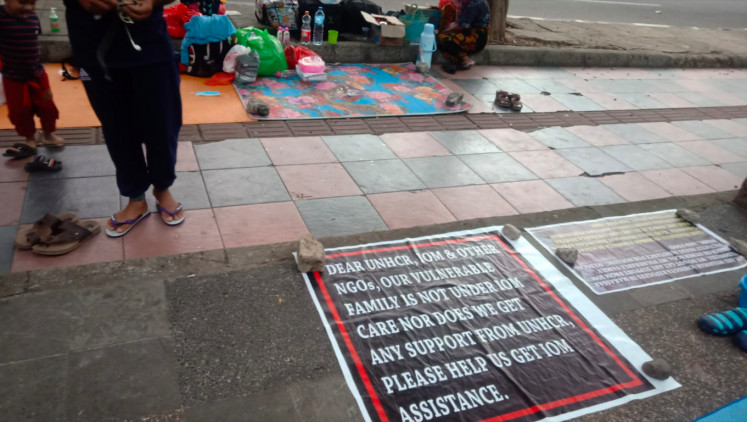
Collective support
Currently, Bebe and other refugees are getting help from Shofiqul and his companions who have resettled in Indonesia. “What we can do as a community is try to help them by giving food and clothes,” Shofiqul said.
This is not the first time that refugees are finding hurdles to resettling in Indonesia. In 2021, the Post reported that Afghanistan refugees in Indonesia also meet hardships in their resettlement. Refugees are also susceptible to mental-health issues because their rights as human beings are denied.
Meanwhile, Telly Nathalia, an activist for refugee and asylum seekers’ issues, added that civil society can partake to help refugees resettle if there is not enough support from the authorized group. She added that it is crucial to share more information about refugees with society.
“From what I’ve been analyzing, there are also not many citizens who are aware of the presence of refugees in our country,” Telly said.
She further said that communities willing to help the refugees to resettle in a new country can join the established NGO to make their path easier.
In the meantime, Shofiqul is hopeful for his fellow countrymen to receive assistance as soon as possible. “It’s an urgent situation because they have nowhere to go,” he closed.



